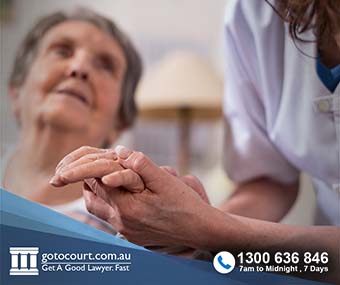Negligence (ACT)
Negligence (ACT)
Negligence is the failure to meet a standard of behaviour expected of certain people. For instance, every driver owes every other road user a duty to drive with due care and attention. If a person is injured because of a driver’s breach of this duty, the injured person can usually make a compensation claim. This claim can be for losses resulting from personal injury, property damage, and various other forms of economic loss. In the Australian Capital Territory, the tort of negligence is codified in the Civil Law (Wrongs) Act 2002.
Negligence claims in the ACT
To bring a claim of negligence against someone in the ACT, a plaintiff must establish the following elements:
- That the defendant owed a duty of care to them;
- That the defendant breached their duty of care;
- That the plaintiff sustained an injury;
- That the breach of duty caused the injury; and
- That the harm was reasonably foreseeable.
Duty of care
In the ACT, certain individuals and entities have a duty to act with care to protect certain other people from harm. Commonly referenced examples include the duty of a solicitor towards their clients, or an occupier to a guest. The courts have established a list of recognised duty of care relationships through previous case law, relationships characterised by their control and reliance. For instance, a duty has been found to exist from:
- employer to employees;
- doctor to patients;
- prison to prisoner;
- manufacturer to consumer;
- road user to fellow road user;
- property occupier to visitor; and
- government to public.
The courts can also recognise a “novel” duty on a case-by-case basis. This is done by comparing the existing examples to the new case and asking if the relationship involves the necessary degree of closeness (or “proximity”). For instance, a doctor has a proximate relationship with their patients, but not with every stranger on the street. In addition to proximity, the court must also find that the defendant exercised a significant degree of control in the relationship, and the plaintiff reasonably relied upon the defendant to take care. For instance, an occupier is in a position of control of premises, and should take care to ensure that there are no foreseeable risks for visitors. This might involve performing regular maintenance and inspections or installing sufficient lighting and suitable floor surfaces. A visitor must rely on the occupier to take this care.
There are statutory exceptions to the rules around duty of care and negligence. For instance, in the ACT, a Good Samaritan is exempt from any personal liability if they give emergency aid in good faith (and not recklessly). Similarly, a food donor is exempt, and a volunteer is protected from a negligence claim while working for a charitable or community organisation.
Breach of duty of care
Even a person with a duty of care is not expected to be perfect or to protect against every possible risk. A person only breaches their duty of care when they fail to act as a reasonable person would in the circumstances. Specifically, a person who fails to take precautions to avoid risk is only liable if:
- the risk was foreseeable;
- the risk was not insignificant; and
- in the circumstances, a reasonable person would have taken precautions.
A person or entity can also be held vicariously liable for the negligent acts of someone else. For example, a school is vicariously liable for any staff member’s negligence that causes damage or injury to a student.
Loss or injury
An essential prerequisite of a negligence claim is that the plaintiff proves that they suffered a loss as a result of the breach of care. An injury can be to the person (both physical or psychological), to property, or to the plaintiff’s economic situation. Regardless of the type of loss, the plaintiff must establish a causal link between the defendant’s failure of duty of care and the loss. For example, there is a clear causal link if a plaintiff breaks their leg because their employer fails to repair shop equipment, but it can be more difficult to prove the link between a worker’s psychological condition and workplace bullying.
A plaintiff may also be at least partially responsible for their own injury. For instance, a passenger involved in a car accident may have contributed to the severity of their injuries if they were not wearing a seatbelt. A defendant’s liability can reduce if there is proof that there was contributory negligence, even if the defendant was the cause of the loss in the first place.
Apologies
Sometimes a plaintiff sees an apology as evidence that a defendant acknowledges their role in the plaintiff’s loss. However, under ACT law, a defendant’s apology does not indicate fault or liability. Indeed, an expression of sympathy is not admissible in any civil proceeding in the ACT.
Time limits
Under the Limitation Act 1985, general negligence claims must be brought within six years. However, the limitation period is shorter for negligence claims based on personal injury. It is important to seek legal advice as this time limit can differ for a minor or person with a disability. Also, it is important to know that there is no limitation period to bring a claim in relation to child abuse.
Please contact Go To Court Lawyers on 1300 636 846 with any questions about negligence claims in the ACT. Our solicitors can help with making a negligence claim or assist with any other legal matter.

Affordable Lawyers
Our Go To Court Lawyers will assist you in all areas of law. We specialise in providing legal advice urgently – at the time when you need it most. If you need a lawyer right now, today, we can help you – no matter where you are in Australia.How It Works




1. You speak directly to a lawyer
When you call the Go To Court Legal Hotline, you will be connected directly to a lawyer, every time.

2. Get your legal situation assessed
We determine the best way forward in your legal matter, free of charge. If you want to go ahead and book a face-to-face appointment, we will connect you with a specialist in your local area.

3. We arrange everything as needed
If you want to go ahead and book a fact-to-face appointment, we will connect you with a specialist in your local area no matter where you are and even at very short notice.




















